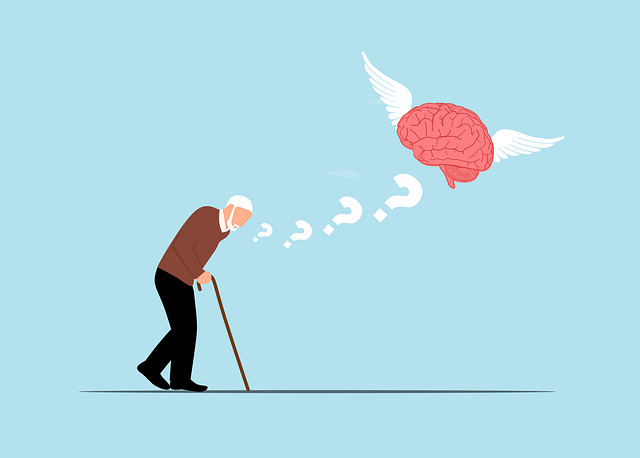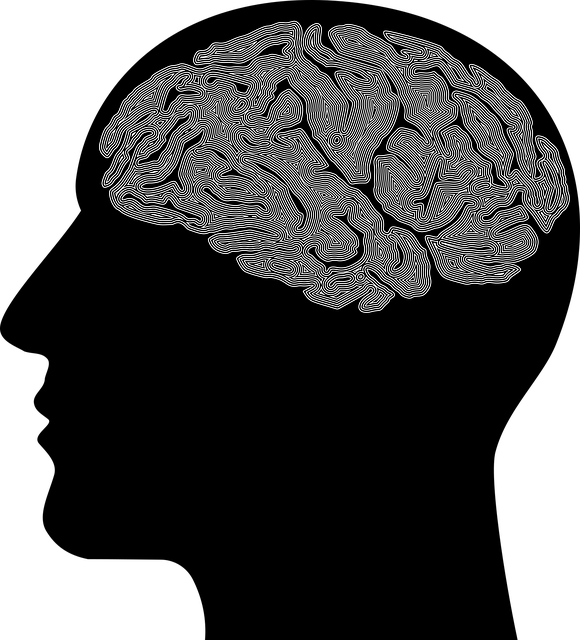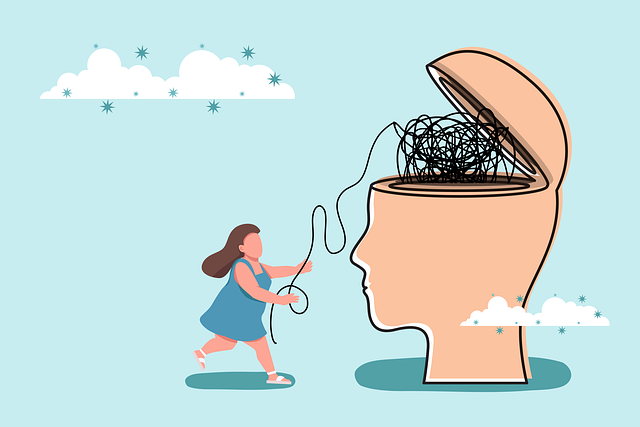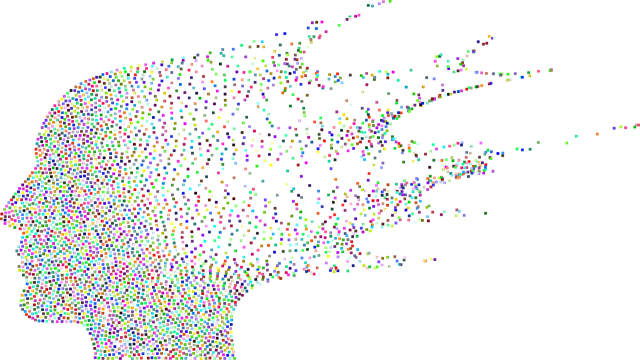Mental illness diagnosis faces challenges due to varied symptoms, cultural differences, and comorbidities. Golden Somatic Experiencing (GSE) Therapy offers a revolutionary solution by combining mindfulness meditation with trauma healing. This holistic approach recognizes the mind-body connection, addressing past traumas and improving emotional well-being. GSE's effectiveness in treating anxiety and depression, backed by research, enhances diagnosis accuracy. Integrating GSE into clinical settings alongside traditional therapies like talk and SST creates a comprehensive environment for detailed patient understanding. As technology advances and mental health awareness grows, GSE and continuous professional development are crucial for accurate diagnoses and improved patient outcomes.
Mental illness diagnosis accuracy has long been a subject of concern, with current methods often hindered by subjective assessments and limited objective markers. This article explores innovative solutions to enhance diagnostic precision, introducing Golden Somatic Experiencing (GSE) Therapy – a holistic approach that integrates somatic techniques with traditional mental health practices. By delving into the challenges, benefits, and integration of GSE, we aim to empower mental health professionals in making more accurate diagnoses, ultimately improving patient outcomes.
- Understanding the Current Challenges in Mental Illness Diagnosis
- Introduction to Golden Somatic Experiencing Therapy (GSE): A Holistic Approach
- Enhancing Diagnostic Accuracy through GSE Techniques
- Integrating GSE into Traditional Clinical Settings
- Future Directions: Continuous Improvement for Mental Health Professionals
Understanding the Current Challenges in Mental Illness Diagnosis

Mental illness diagnosis is a complex process fraught with challenges. One significant hurdle is the lack of standardized symptoms across diverse populations. Mental health disorders often manifest differently based on cultural, social, and environmental factors, making accurate diagnosis especially difficult for healthcare providers. For instance, what constitutes as severe anxiety in one culture might differ vastly from another, leading to misdiagnosis or delayed treatment.
Moreover, the subjective nature of many mental health assessments poses a problem. Patients may struggle to articulate their experiences accurately, while healthcare providers must interpret these descriptions within the context of specific disorders. This complexity is further exacerbated by comorbid conditions and the impact of traumatic experiences, which can mask or complicate symptom presentation. To address these challenges, healthcare provider training in cultural competency, resilience-building communication strategies, and innovative therapeutic approaches like Golden Somatic Experiencing Therapy are gaining traction.
Introduction to Golden Somatic Experiencing Therapy (GSE): A Holistic Approach

Golden Somatic Experiencing Therapy (GSE) offers a holistic approach to mental health treatment, integrating mind and body practices to address the complex nature of psychological distress. This therapeutic method recognizes that emotional well-being is deeply connected to our physical state, sensory experiences, and past traumas. By employing techniques such as deep breathing exercises, guided imagery, and trauma-focused interventions, GSE aims to facilitate a profound sense of relaxation and healing.
The core principles of GSE are aligned with the mind over matter philosophy, emphasizing the power of conscious awareness in reshaping our response to stress and trauma. Healthcare provider cultural competency training is also integral to GSE, ensuring therapists can create inclusive and safe spaces for diverse clientele. Furthermore, risk management planning for mental health professionals is enhanced through GSE’s emphasis on somatic interventions, helping practitioners navigate challenging cases with greater resilience and effective strategies.
Enhancing Diagnostic Accuracy through GSE Techniques

Enhancing Diagnostic Accuracy through GSE Techniques
In the pursuit of improving mental illness diagnosis accuracy, Golden Somatic Experiencing (GSE) Therapy emerges as a promising approach. This innovative form of therapy goes beyond traditional talk therapies by integrating mindfulness meditation and compassion cultivation practices to create a holistic healing experience. By focusing on the connection between the mind and body, GSE helps individuals process traumatic memories and reduce symptoms associated with various mental health disorders.
The effectiveness of GSE is supported by growing research that demonstrates its ability to improve emotional regulation, enhance mental wellness, and even produce tangible changes in brain function. For instance, studies have shown that regular participation in a Mental Wellness Podcast Series Production centered around mindfulness meditation and compassion cultivation can significantly reduce symptoms of anxiety and depression, making it easier for healthcare professionals to accurately diagnose and treat these conditions.
Integrating GSE into Traditional Clinical Settings

Integrating Golden Somatic Experiencing (GSE) Therapy into traditional clinical settings represents a promising step forward in mental health care. This therapeutic approach, focused on resolving trauma and stress, offers unique benefits that can enhance diagnosis accuracy and treatment effectiveness. By combining GSE with established practices, healthcare professionals can create a more holistic environment for patients. For instance, incorporating self-awareness exercises and confidence-boosting techniques from GSE alongside traditional talk therapies allows individuals to explore and express their emotions in a safe space, fostering improved communication and understanding of their mental health conditions.
Furthermore, Social Skills Training (SST), often utilized in conjunction with GSE, can aid patients in navigating interpersonal relationships and social interactions more effectively. This training empowers individuals with practical tools to manage emotional responses during social exchanges, leading to better diagnosis comprehension and self-advocacy. Integrating these complementary modalities not only enhances the overall therapeutic experience but also contributes to more precise mental illness diagnoses by providing a comprehensive view of each patient’s unique needs and challenges.
Future Directions: Continuous Improvement for Mental Health Professionals

As technology advances and our understanding of mental health deepens, future efforts should focus on integrating innovative practices like Golden Somatic Experiencing Therapy into the toolkit of mental health professionals. This therapy technique, with its emphasis on emotional healing processes, has shown promise in treating complex trauma and could be further explored and refined. By combining evidence-based approaches with emerging therapies, mental wellness podcast series production can play a significant role in educating both practitioners and the public about the latest advancements.
Public awareness campaigns development should also be prioritized to dispel myths and reduce stigma surrounding mental illness, fostering an environment where individuals feel more comfortable seeking help. Continuous professional development programs that encourage ongoing learning and adaptation will ensure mental health professionals stay abreast of the latest research and treatment modalities. This commitment to improvement is crucial in enhancing diagnosis accuracy and ultimately improving patient outcomes.
Mental illness diagnosis accuracy has seen significant advancements with the integration of innovative approaches like Golden Somatic Experiencing (GSE) Therapy. By combining traditional clinical methods with GSE’s holistic techniques, professionals can navigate complex cases more effectively. As research continues to evolve, future improvements will further refine mental health practices, ensuring better outcomes for patients. Embracing these advancements is key to enhancing the overall well-being of individuals seeking support for their mental health journeys.














